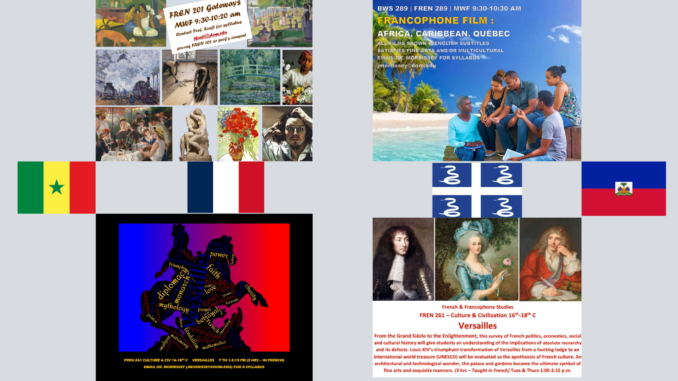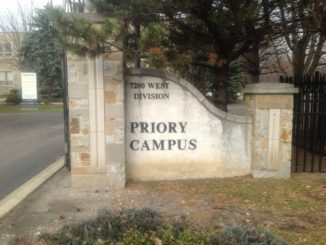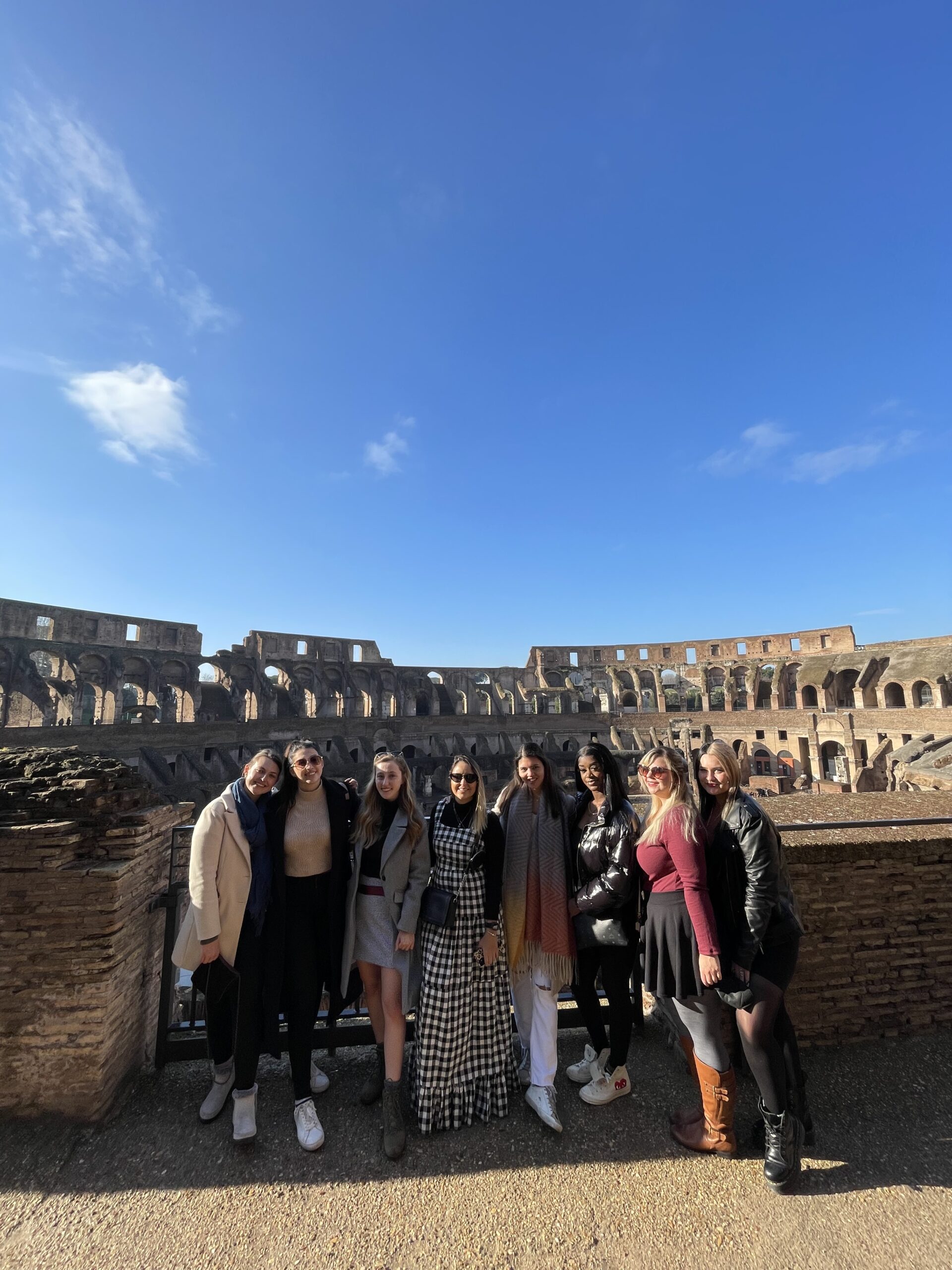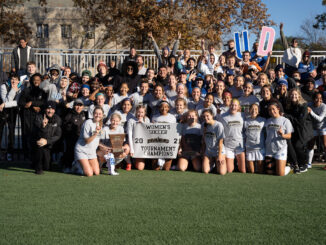
In Fall 2020, the French &Francophone Studies program strives to implement deeper cultural appreciation and provide professional development across its courses.
Dr. Jennifer Morrissey, the full-time French & Francophone Studies lecturer and division director, notes the importance of examining French histories through a historical and post-colonial lens.
“In my view, it’s incomplete if you study the classical period without examining France’s role in other countries, particularly [its role] in colonialism” Morrissey said.
She further comments on the importance of the French language as a social and cultural medium for Francophone countries. She mentioned authors who kept to the standard French and those who used the language to convey cultural colloquialism.
“Maybe [it is] speaking with grandparents or maybe speaking with people on the streets, and then there’s this shift of code, and language becomes a really important medium for people, not only to speak and convey ideas, but it also becomes something that demonstrates your level of education and your family background” Morrissey said. “So, it becomes a very emotional kind of topic for a lot of people”.
And the modernized French curriculum aims to bring this same humanity into its courses. According to Morrissey, professors in other departments have expressed interests in collaboration.
Dr. Aly Dramé, associate professor of history, will participate in discussions about the French Revolution and History of Senegal in the course on Versaille. Dr. Nkuzi Nnam, professor of Philosophy, will impart his expertise in Black World Studies into the “Francophone Film: Africa, Caribbean, Québec” course.
Even in introductory French courses, Morrissey envisions a focus on humanistic mediums, introducing studies and analysis of history, short stories, folktales, etc.
In addition to the cultural focus, the French program plans to deepen its professional ties locally and internationally.
Jeff Kraft, adjunct professor of French, seeks to work through university channels to add semester and summer internships for Francophone companies in Chicagoland. He mentions that Dominican University will continue to support students with interests in international internship experiences.
“The emphasis of the paid internships would be to provide Dominican students with valuable work experience in global organizations” Kraft said in an email response. “As for study abroad, we are looking to complement our semester-broad options with more short-term educational experiences — such as affordable study abroad in Paris and other Francophone cities during the winter interim between semesters”.
Kraft echoes Morrissey’s advocacy and enthusiasm for an inclusive expansion of the program that will reflect the diversity of Francophone countries.
“Modern language professors are committed to finding new ways to invite Dominican students to learn a new language,” Kraft said, “but also to explore languages’ culture, literature and history — whether students have a strong background in a particular language or not”.
New ways of language learning can also include volunteering in French-speaking enclaves in Chicago. Morrissey said helping out with the sisters of the Fraternité Notre Dame will be one option once safety measures are reached.
Francophone means “French-speaking” in a general sense but it is also notion characterized from movements by Aimé Césaire, Léopold Sédar Senghor, and Birago Diop, notables who advocate social justice activism.



